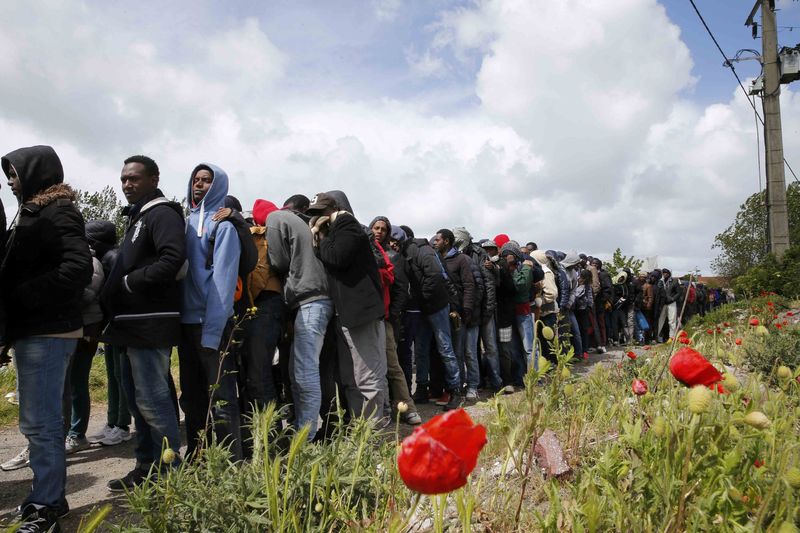By Robin Emmott and Marton Dunai
BRUSSELS/BUDAPEST (Reuters) - Hungarian Prime Minister Viktor Orban decried EU proposals for migrant quotas as "bordering on insanity" on Tuesday, and defended his recent calls for the possible reintroduction of the death penalty.
Orban made a combative appearance before the European Parliament in Strasbourg, where lawmakers challenged the centre-right leader over his increasingly tough anti-immigration stance.
Last week, the EU executive announced a plan to distribute asylum-seekers more fairly around its member states and take in 20,000 more refugees, after being shocked by thousands of deaths among people trying to reach Europe across the Mediterranean.
"The proposal on the table from the European Commission... is absurd, bordering on insanity," Orban told the parliament. "Quotas are only going to bring more people to Europe. It is an incentive for people traffickers and it will simply tell people: yes, try to cross the Mediterranean at all costs."
Italy and other southern European countries are clamouring for help to relieve the influx, but Orban said Hungary was already a favoured destination for migrants from Kosovo, Syria and Iraq, and rejected an EU-wide immigration policy.
Orban, whose Fidesz party is losing ground to Hungary's far-right, eurosceptic, anti-immigrant Jobbik party, said he had also launched a public consultation to ask Hungarians what they thought of immigration.
That was anathema to the Commission's deputy chief Frans Timmermans, who accused Orban of malicious behaviour.
"A public consultation based on bias... on prejudice about immigration can hardly be considered a fair basis for deciding sound policies," Timmermans said. "Depicting migrants as a threat to jobs... is malicious and simply wrong."
PROTEST BACK HOME
As Orban spoke in Strasbourg, hundreds of people protested against his policies in central Budapest, saying his ideas were deeply flawed and were planting the seeds of hatred in what they saw as an already xenophobic society.
"It's outrageous, what has been going on in Hungary vis-a-vis immigrants, refugees, and foreigners in general," protester Agnes Kelemen said. "We have not been friendly to immigrants before and now politicians are changing that for the worse."
Afghan refugee Ali Nawrozi, who has lived in Budapest for three months, told the crowd he was outraged at links suggested by Orban between immigration and terrorism.
In a questionnaire sent to 8 million Hungarian households, Orban asked: "There are some who think that mismanagement of the immigration question by Brussels may have something to do with increased terrorism. Do you agree with this view?"
Nawrozi said: "I did not come to Hungary to participate in terrorism. Terrorism is what I fled from in my home country."
Orban also angered EU lawmakers and Strasbourg officials with his views on the death penalty, which he defended as free speech.
Capital punishment is banned in the EU, and Hungary scrapped it shortly after the fall of Communism in 1990, but Orban raised the question of reinstating it after the murder of a young tobacconist in the south of the country stirred public anger.

He said Timmermans' views were "the opinion of one citizen... I don't want to live in the Middle Ages where there are taboo subjects that we cannot talk about."